On this day four years ago, Jurgen Klopp officially became Liverpool manager and his arrival ensured the club was rightfully ushered back in the direction of their perch.
Cast your mind back a little over four years ago; October 4, 2015, to be exact. Liverpool had just laboured to a 1-1 draw against Everton and languished in 10th position in the Premier League table.
Brendan Rodgers would be dismissed before the night was out, but the doom and gloom continued to cast a shadow over the club as the scale of the rebuilding process came to the fore.
The manager who had taken the Reds to the cusp of the league title in 2013/14 had been running on borrowed time and, as Liverpool bid their farewells with a mixture of relief and trepidation for the future, the hunt for the next manager got underway—or so it seemed.
The fact of the matter was that owners FSG had already safely secured their man in a city over 3,000 miles away from Liverpool, with New York providing the backdrop for what would prove to be a catalyst in the Reds’ exponential rise.
It is now October 8, 2015, and Jurgen Norbert Klopp is being officially unveiled at Anfield as the new Liverpool manager, to hysteria from media and fans alike, with a dusting of disbelief to match.
His message from day one was clear and has since been well-documented: “We have to change from doubters to believers.”
A shift that Klopp has successfully overseen during his four years in the job and 221 matches to-date at the helm.
Turning the Tide
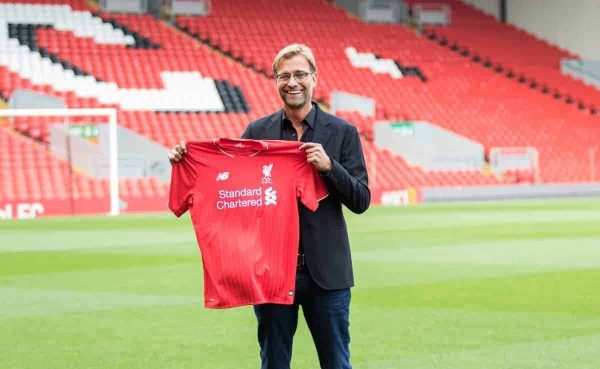
It was not an instantaneous switch in mentality, however, as while Klopp injected much-needed optimism into the club, the fans and the players themselves had to re-discover the art of fierce defiance to setbacks both on and off the field.
The 2-1 defeat to Crystal Palace at Anfield, the first at home under Klopp where the German lamented the mass walkout from fans which left him feeling “pretty alone,” was as much a turning point as it was the lowest of lows in regards to the level of belief emanating from the stands.
Rodgers had left behind a side who were defensively diabolical, having shipped 82 goals in his last 69 games in all competitions, but more also—and more significantly—a fragility which came at a direct cost to a fighting spirit, which was key in instilling a belief that the game was not over until the final whistle.
Divock Origi’s equaliser in stoppage time against West Brom on a bitterly cold December evening would serve as the springboard for all of which Klopp was aiming to achieve early in his reign on Merseyside.
The celebratory bow in front of the Kop may have elicited jibes from those outside the club, but it served as the moment where Liverpool’s manager, players and fans started to re-establish a deep-rooted connection with one another.
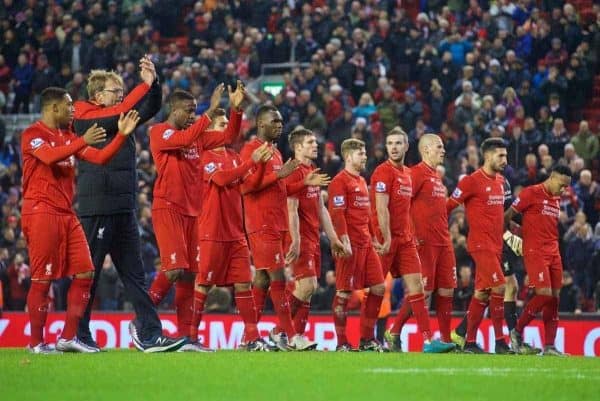
And while the Reds may have finished that game in ninth position, the magic was re-ignited and the light at the end of the tunnel shone brighter once more when Liverpool dispatched Manchester City to the tune of 4-1 at the Etihad Stadium the following matchday.
It was an occasion marked by Roberto Firmino’s first goal for the club and the scintillating, relentless style of football which had the likes of Ray the fitness egg, formally known as Raymond Verheijen, questioning and criticising the long-term jeopardy of the approach.
The demands on players were greater than it had ever been, but Liverpool were fitter than ever and, while the depth of talent within the squad was not as great as their counterparts, Klopp squeezed out every ounce he could from the personnel at his disposal.
From his first press conference he stated that he believed “in the potential of this team,” and although there was a need for vast improvement to return the club to the top echelon of sides domestically and in Europe, Klopp was still able to guide Liverpool to two finals in his first season at the helm.
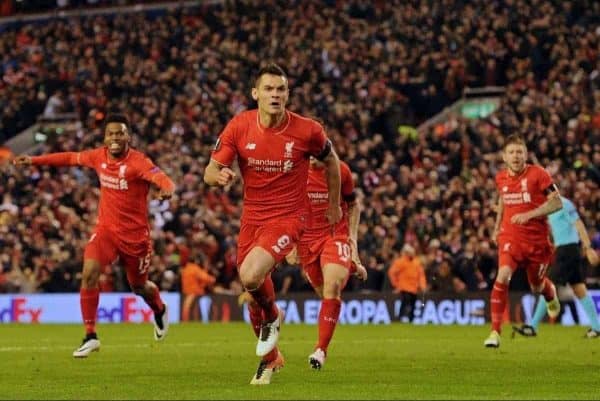
One of those came off the back of one of the great European nights at Anfield, as resignation turned to defiance and then euphoria on that magical evening against Borussia Dortmund.
And, while both the League Cup and Europa League finals would end in despair, the foundations for a bright future were obvious and left few in doubt that the Reds would now find themselves in regular contention for silverware.
You only had to hear the words “Only silly idiots stay on the floor and wait for the next defeat. We will strike back,” from Klopp after the loss at Wembley to know that the tide was turning and that Liverpool would consistently grow stronger, in mind and ability.
The Rebuild
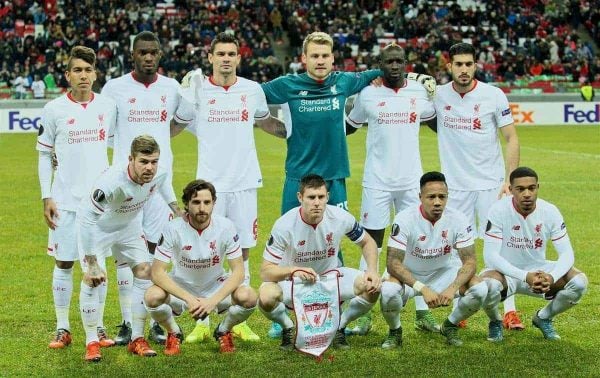
While results in the Premier League in his first season did not always go Liverpool’s way with consistency proving hard to find, Klopp was vitally instilling the key pillars of his style of play—a process which also proved instrumental in identifying the deadwood.
The likes of Christian Benteke, Jordon Ibe, Joe Allen, Mamadou Sakho, Mario Balotelli and Martin Skrtel would all exit Anfield in the summer of 2016, departures which would see Klopp take his first step in remoulding Liverpool in line with his aspirations.
And, while changes to on-field personnel took place, Klopp’s standing at the club was cemented further as FSG tabled a new six-year deal for the German and his staff to ensure his future was tied with Liverpool until at least 2022.
“There is much to do and much to achieve and we look to do this by being the most completely together group anywhere in the world.”
Together.
A word uttered by Klopp when news of his extension was made public, but significantly a word which would epitomise all he has, and is yet to, accomplish as manager of Liverpool Football Club.
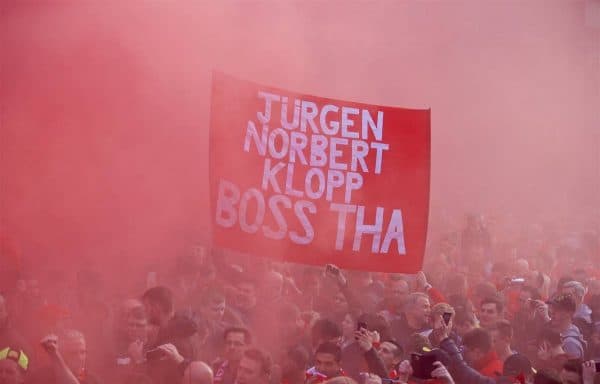
Such is his standing in world football Klopp can easily attract top-tier talent, but in the summer of 2016 and in the years which followed, it became crystal clear that quality on the field needed to be equally matched by the character and personality of the person behind the player.
Much like a house would have a sign warning of a guard dog being present, Liverpool’s read: ‘No egos allowed.’
The German inherited a side with a mixed bag of genuine quality, loyal servants and a plethora of questionable purchases, in part due to Liverpool’s fragmented relationship with former manager Rodgers and the much-fabled transfer committee comprising of Michael Edwards, Barry Hunter and Dave Fallows.
Klopp has experienced no such qualms, instead openly allowing the data-driven approach to work its magic and establish a shrewd recruitment process which has seen the Reds not only invest wisely, but also cunningly offload players.
Sadio Mane’s arrival in 2016 would trigger the Reds’ rise to the summit, with Gini Wijnaldum and Joel Matip following before Mohamed Salah, Andy Robertson and Alex-Oxlade-Chamberlain were added to the fold the next summer.
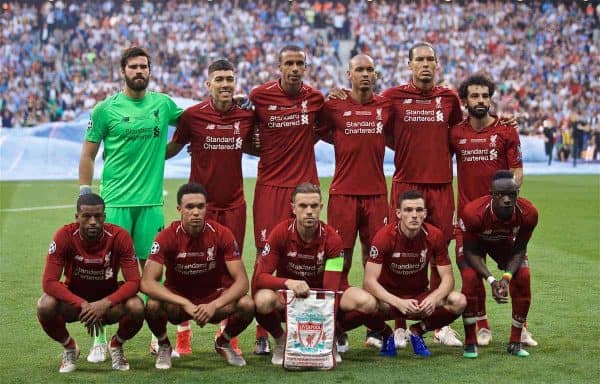
Moreover, the handling of Philippe Coutinho’s £142 million departure and the subsequent decision to reinvest the proceeds in the acquisition of Virgil van Dijk and Alisson, while also shelling out for the likes of Fabinho, Naby Keita and Xherdan Shaqiri, has made Liverpool a force to be reckoned with.
The spine of Liverpool’s team was long-neglected but Klopp had now found himself with the perfect ingredients to end the seven-year wait for silverware.
Importantly, Liverpool didn’t just throw wads of cash at the issue as they sold shrewdly and reinvested wisely—and all the while Klopp elevated the players at his disposal to new levels; just take the example of Andy Robertson, Trent Alexander-Arnold, Firmino and Matip.
![FLEETWOOD, ENGLAND - Wednesday, July 13, 2016: Liverpool's manager Jürgen Klopp [R] with head of fitness and conditioning Andreas Kornmayer [L] before a friendly match against Fleetwood Town at Highbury Stadium. (Pic by David Rawcliffe/Propaganda)](https://www.thisisanfield.com/wp-content/uploads/P160713-020-Fleetwood_Liverpool-600x400.jpg)
The meticulous attention to detail, however, stems beyond the figures we see in the matchday squad as the recruitment of staff behind the scenes has proved as equally decisive.
Both Andreas Kornmayer, head of fitness and conditioning, and Mona Nemmer, head of nutrition, were poached from Bayern Munich in 2016, while Danish throw-in coach Thomas Gronnemark was added last season and Vitor Matos, the new elite development coach, has recently taken over Pepijn Lijnders’ old role in bridging the academy to the first team.
No stone is left unturned in the pursuit of sustained success.
Doubters to Believers
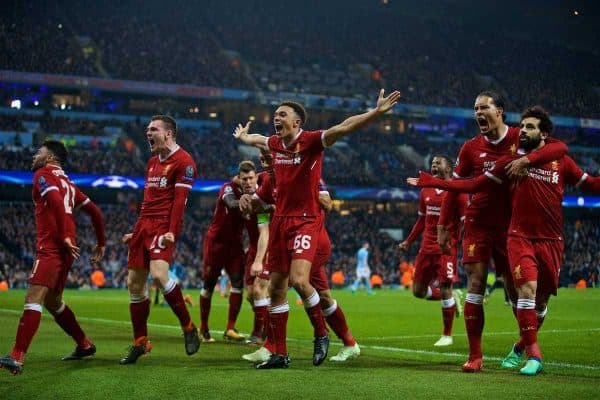
That success has manifested itself in a multitude of ways since Klopp arrived on our shores four years ago and prior to June 1, 2019, it was predominantly measured in the Reds’ growth and the collective belief that silverware was around the corner.
The conclusion of the 16/17 season saw the Reds secure their passage back into the Champions League for just the second time in seven seasons, a campaign which culminated in their first appearance in the final since 2007.
And while it may have ended in a heartbreaking defeat, there would be no lingering belief that it was the end of the road, that it was Liverpool’s only chance.
In fact, it was quite the opposite. It ignited unwavering confidence within all levels of the club and fed into Klopp’s calls to consistently stay “angry and greedy” in search of going one better.
“We saw the European Cup, Madrid had all the fucking luck.
“We swear we’ll keep on being cool. We’ll bring it back to Liverpool!”
And although the second successive season in the Champions League would not prove as straightforward as the last, as the Reds lost half of their group games, it was a promise well-kept.
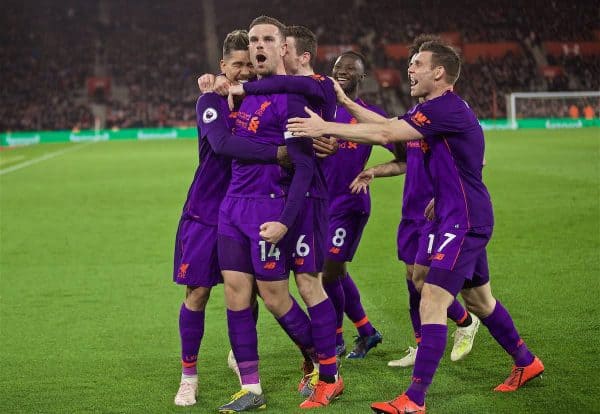
Klopp’s charges maintained their standing as a side never to have lost a two-legged European tie under his management, all the while challenging for the Premier League title.
An assault on two competitions which, while returning mixed fortunes in the end, would leave no doubt in one’s mind that Liverpool were no flash in the pan, instead they were a side not to be messed with and a team ready to dig in for the long-haul.
Just ask the likes of Barcelona, Bayern Munich, Paris Saint-Germain, Napoli and Manchester City.
In one of the tightest and fiercest-ever title races, the Reds went toe-to-toe with perhaps the finest Premier League side ever assembled, finishing one point adrift with 97—a club record, and the most of any runner-up in the competition.
Damaging draws to the likes of Manchester United, Everton and Leicester would prove decisive, as would taking just one point from City.
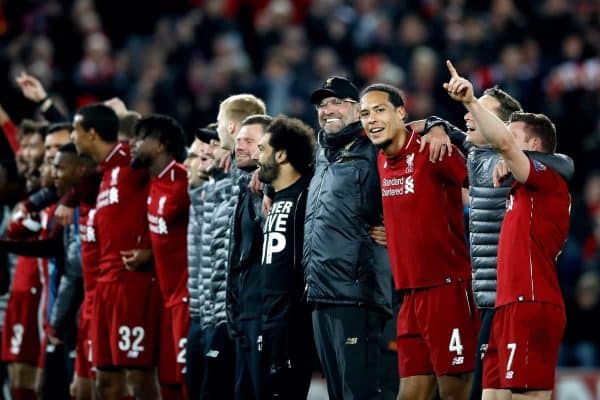
But having their backs against the wall with no room for a further misstep in the run-in established a deep sense of unity and mental fortitude, which would lead to Barcelona’s remarkable undoing on a European night at Anfield which defied all the odds.
With his team on the wrong side of a three-goal deficit, Klopp still believed: “I normally wouldn’t think it’s possible, but because it’s you, we have a chance.”
He had achieved what he had set out to do in his first day on the job, instilled belief and made his players feel like giants in a cauldron which took no prisoners, a cauldron which come the end of the 90 minutes was as close to a physical manifestation of Klopp’s rallying cry on his first day as you’ll ever see.
Doubters to believers. Mentality giants. Soon-to-be European champions.
Four Years In, But Only the Start
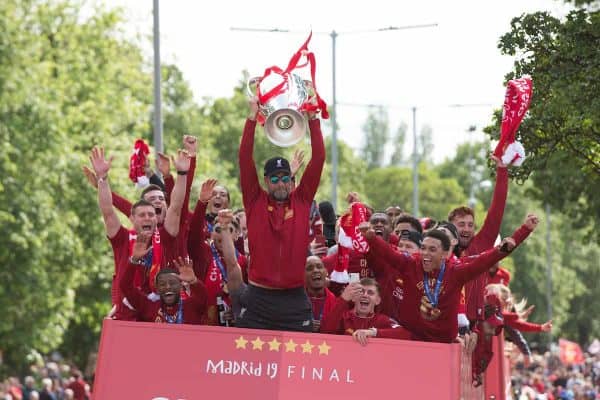
With Klopp, Liverpool have a manager who understands, appreciates and epitomises what it is to be a part of an institution which dates back to 1892.
His infectious personality, charisma and an insatiable desire for constant improvement is reflected in the team he sends out onto the field, week in and week out.
There is an abundance of talent who can rightfully lay claim to be the leading player in their position, the weight of the past has been offloaded, there is stability and belief across all areas and the club has returned to the pinnacle of the game.
It is now October 8, 2019, and Liverpool are European champions and Premier League leaders and title contenders, with the club and the team unrecognisable from the one Klopp inherited four years ago.
And while his success to-date has been etched into the history books, the rest is still waiting to be written.
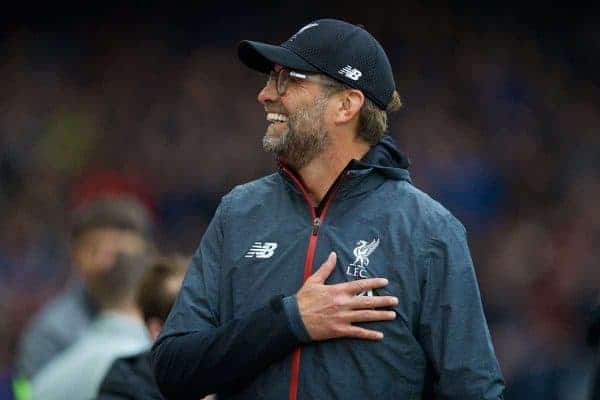
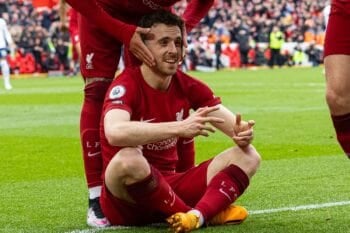
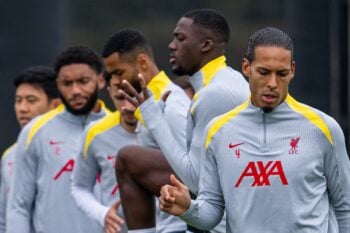
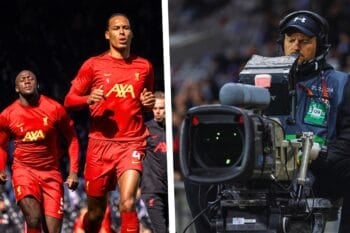

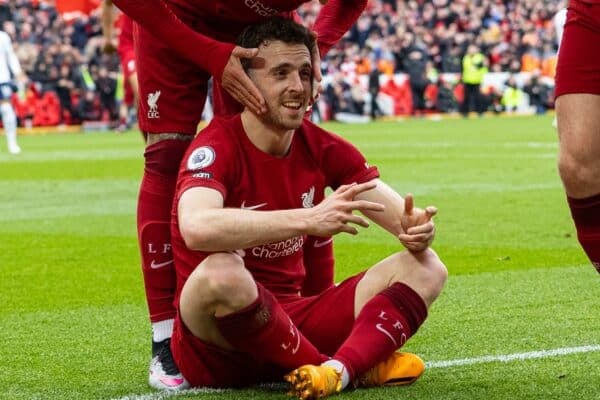
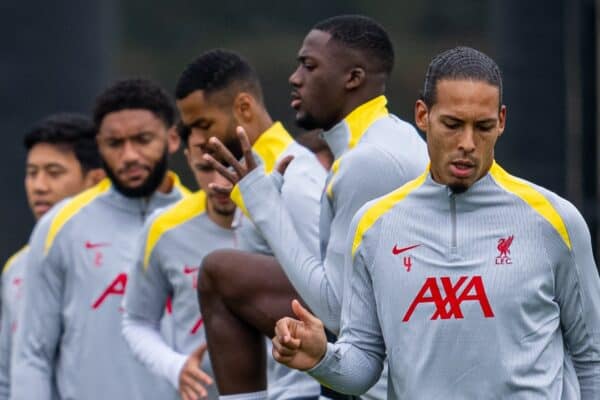
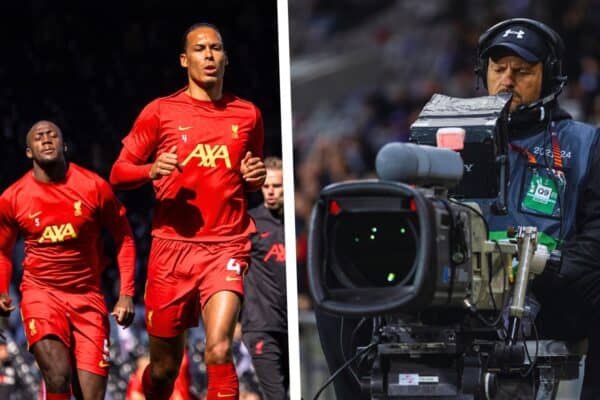
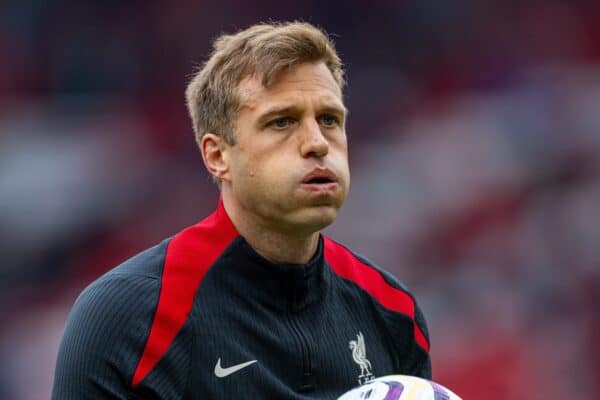


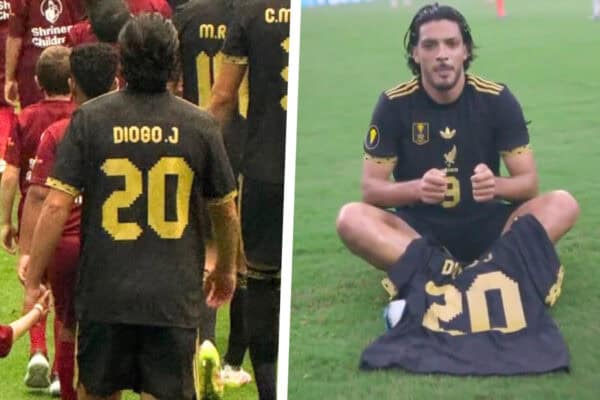
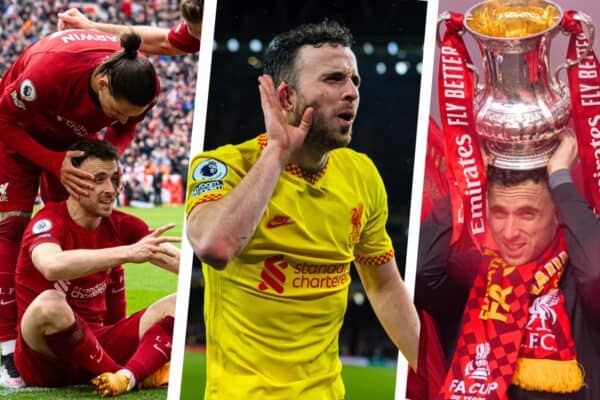



Fan Comments